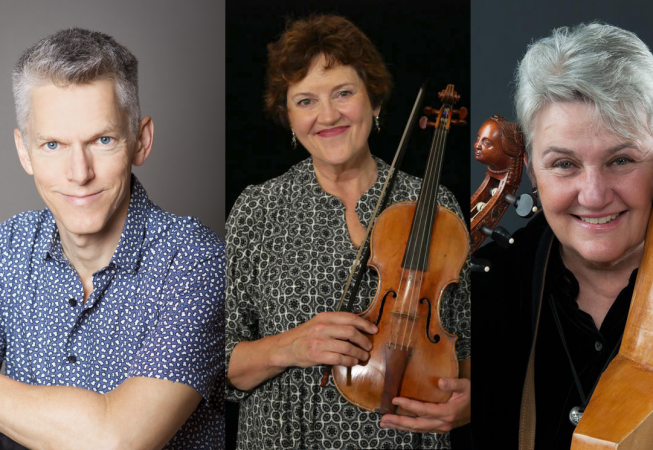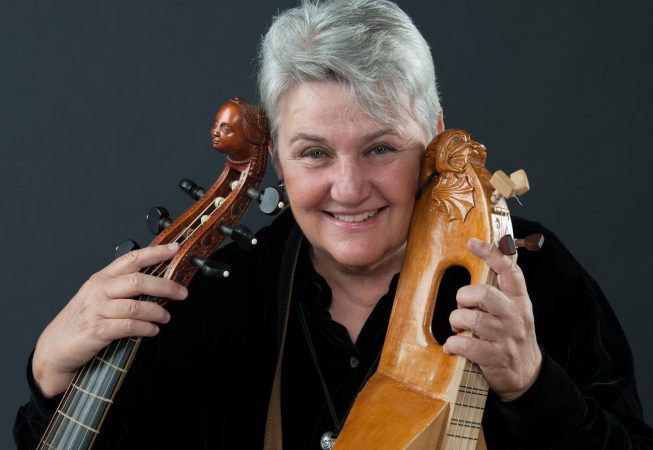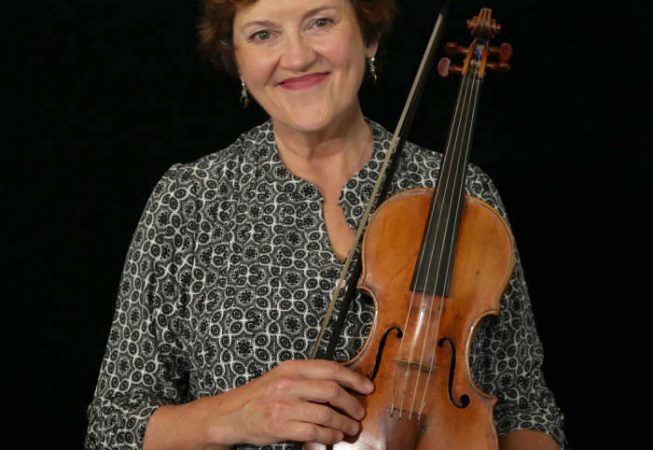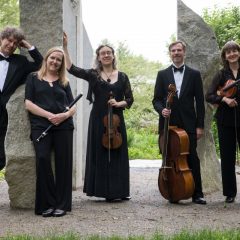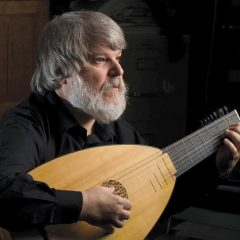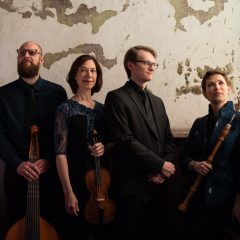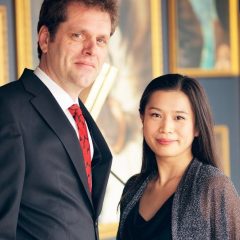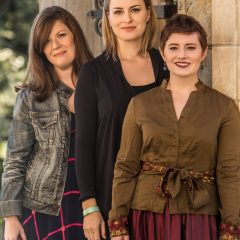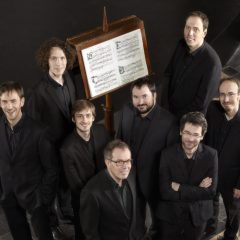Semper Fantasticus
Bloomfield Hills
Friday, April 1, 8 PM
BUY TICKETS
Ann Arbor
Saturday, April 2, 8 PM
BUY TICKETS
There will be no pre-concert lecture before this performance.
The “fantastic style,” as defined by polymath Athanasius Kircher in his Musurigia Universalis (1650), was “the most free and unrestrained method of composing…bound to nothing, neither to words nor to a melodic subject [and] instituted to display genius.” This new way of writing for instruments, dubbed the stylus fantasticus by the Germans, took its cue from the Italians, whose stile moderno sonatas adapted the rhetorically-inflected expression of their own vocal music to instruments. The Ars Lyrica Houston program includes examples of the genre by Bertali, Rossi, Schmelzer, Buxtehude, Erlebach, and Wilhelm Friedemann Bach (considered by J.S. Bach to be the most talented of his many children).
Ars Lyrica Houston specializes in music from the Baroque era, the “golden age” of the seventeenth and eighteenth centuries, performing on period instruments with careful attention to historical style and context. Founded in Houston in 1998 by harpsichordist and conductor Matthew Dirst, this Grammy-nominated ensemble provides audiences with world-class performances of a wide range of operatic and chamber works, both sacred and secular.
Harpsichordist Matthew Dirst is widely admired for his stylish playing and conducting—he was described in the Washington Post as an “efficient, extremely precise conductor who has an ear for detail and up-to-date ideas about performing Bach.” In addition to his work with Ars Lyrica, he recently appeared with the Washington Bach Consort, the Portland Baroque Orchestra, the Dallas Symphony Orchestra, the Houston Symphony, and San Francisco Early Music Society. He holds a PhD in musicology from Stanford University and the prix de virtuosité in both organ and harpsichord from the Conservatoire National de Reuil-Malmaison, France, where he spent two years as a Fulbright scholar.
Mary Springfels, viola da gamba, is a veteran of the American Early Music Movement. She began her career at the age of 21 with the New York Pro Musica and has been playing, recording, and teaching ever since. She was director of the Newberry Consort in Chicago for 25 years. Recently, she has appeared as a soloist with the Houston, Victoria, Sonoma and Arizona Bach festivals, as well as playing at the Berkeley and Amherst Early Music Festivals and teaching for the San Francisco Early Music Society, the Viola da Gamba Society of America, and Viols West. She performs regularly with the Live Oak Baroque Orchestra, The Folger Consort, and Ars Lyrica Houston.
Couperin – La Sultane: https://youtu.be/RwLw0B3UfHM?t=6
-Elizabeth Blumenstock, Matthew Dirst, Mary Springfels
Couperin – Courante a l’Italiene: https://youtu.be/sWjkjQe-7mo?t=293
-Elizabeth Blumenstock, Matthew Dirst, Mary Springfels
Couperin – Allemande: https://youtu.be/sWjkjQe-7mo?t=644
-Elizabeth Blumenstock, Matthew Dirst, Mary Springfels
Castello – Sonata XVI (Libro secondo): https://www.youtube.com/watch?v=8IilHCOcZjU
-Elizabeth Blumenstock, Matthew Dirst
Rossi – Toccata settima: https://www.youtube.com/watch?v=JPq8y70y6AQ
-Matthew Dirst
Marini – Sonata “in Ecco” for three violins: https://www.youtube.com/watch?v=oK4lH69ZhmU
-Elizabeth Blumenstock, Matthew Dirst
Matthew Dirst
“Multiple keyboard skills coupled with intellectual rigor and creativity characterize the work of Matthew Dirst… his hands whirred through the flashing runs and bizarre flourishes of Wilhelm Friedemann Bach’s Concerto.”
“From the opening measures of Le Verneüil (18th Ordre), I sensed that here was a performer with an innate feeling for Couperin. Dirst is able to find the exact expressive center of each piece—the Affekt—and deliver it in a neat package…. I found myself shaking my head in agreement with nearly every one of Dirst’s interpretative choices, from the tender Soeur Monique of the 18th Ordre, to the concluding grand passacaille L’Amphibie of the 24th Ordre.” – Fanfare
“[Dirst’s] playing was of irresistible rhythmic impulse, the rhythm not of the metronome but of a fine dancer ever minutely adjusting to gravity’s tug. He commanded the music’s intellectual rigors but also luxuriated in its pure delight. And there was some pretty dazzling virtuosity.” – The Dallas Morning News
Elizabeth Blumenstock
“Violinist Elizabeth Blumenstock was the featured soloist, and her performance was dazzling. She was able to elicit a hauntingly beautiful tone… the audience was transfixed, leaning forward silently to hear every note of these pianissimo passages.” – Peninsula Reviews
“Violinist Elizabeth Blumenstock’s hair-trigger virtuosity was authoritative, gleefully demented, and mean as a hornet.” – The Washington Post
Mary Springfels
“The playing, notably by Chicago’s Mary Springfels on the gamba… is tasteful and technically flawless.” – Chicago Tribune
“If there is now an avid public for early music in the Chicago area, we have [Mary Springfels] to thank… Springfels and friends are proving that scholarly dedication plus musical expertise equals sublime performances.”– Chicago Tribune

